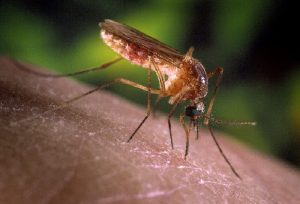The North Dakota Department of Health (NDDoH) announced the state’s second West Nile virus-related death in 2016. The individual was a man who resided in central North Dakota and was older than 60 years of age.

“This death is an unfortunate reminder that West Nile virus can cause very severe disease, especially for those over 60,” said Laura Cronquist, epidemiologist with the NDDoH. “Until there is a hard frost to get rid of the remaining mosquito population, the risk is still present and people should continue to use personal precautions.”
To date, 60 human West Nile virus (WNV) cases have been reported in 24 counties this year. In 2015, North Dakota had 23 WNV cases and one WNV-related death. Of the 60 human cases reported this year, 20 percent have developed the more severe form of WNV disease that causes neurologic infection. Recovery from severe WNV disease may take several weeks or months. Some of the neurologic effects may be permanent.
The signs and symptoms of severe WNV disease can include high fever, headache, neck stiffness, disorientation, tremors, coma, and paralysis. People with these symptoms should see a health care provider immediately. About 10 percent of people who develop neurologic infection due to West Nile virus will die from the infection.
Related:

